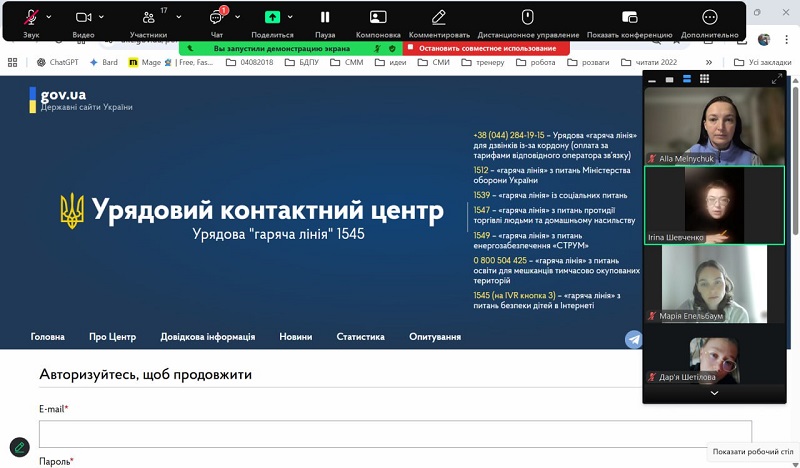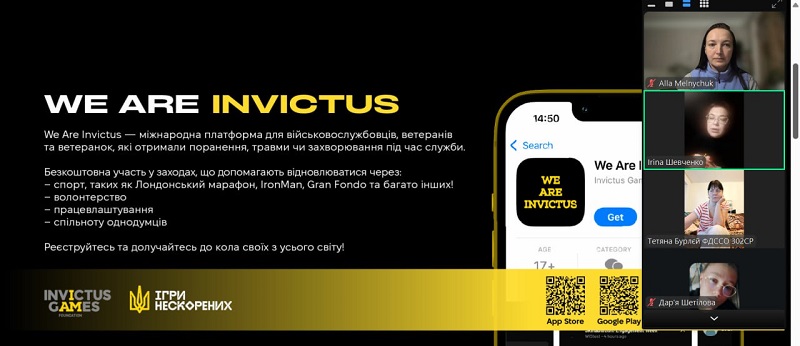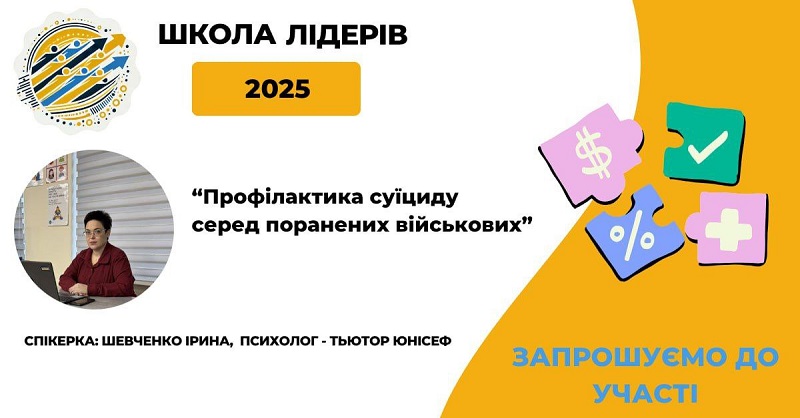17 листопада Школа лідерства БДПУ разом із кафедрою соціальної роботи та інклюзивної освіти провели зустріч «Особливості роботи з військовими. Профілактика суїциду».
Захід провела Ірина Шевченко – психологиня та тьюторка ЮНІСЕФ, яка має значний досвід роботи з пораненими військовими.
Під час зустрічі учасники та учасниці дізналися про специфіку роботи з військовими й обговорили, як можна надавати психоемоційну підтримку навіть без фахової психологічної освіти. Окрему увагу приділили важливості навичок першої психологічної допомоги та отримали рекомендації, де ці навички можна опанувати.
Спираючись на власний практичний досвід, Ірина розповіла про роботу з військовими, які отримали поранення та втратили кінцівки. Вона поділилася порадами, як діяти у випадку підозри суїцидальних намірів, куди звертатися по допомогу та як підтримувати людину через пошук сенсів, зміцнення віри у власні сили та опору на соціальне оточення.
Учасники й учасниці також отримали практичні рекомендації щодо комунікації з військовими: як говорити, щоб людина відчула підтримку, що може викликати додаткову напругу, а що, навпаки, допомагає заспокоїти й розвантажити. Окремо обговорили роль волонтерства у формуванні інклюзивного та стійкого суспільства.
Захід відбувається в рамках освітньої компоненти «Інноваційні моделі надання соціальних послуг», Освітньо-професійна програма: Поствоєнна соціально-психологічна реабілітація та на виконання Цілей сталого розвитку. ЦСР 4: Якісна освіта, ЦСР 10: Скорочення нерівності, ЦСР 16: Мир, справедливість та сильні інституції.



За матеріалами
Алли Мельничук
асистентки кафедри соціальної роботи та інклюзивної освіти,
кураторки Школи лідерства
Working with Military Personnel: How Future Social Service Professionals Are Being Prepared

On November 17, the Leadership School of BSPU, together with the Department of Social Work and Inclusive Education, held a session titled “Specifics of Working with Military Personnel. Suicide Prevention.”
The event was led by Iryna Shevchenko, a psychologist and UNICEF tutor with substantial experience working with wounded service members.
During the session, participants learned about the specifics of supporting military personnel and discussed how to provide psycho-emotional support even without formal psychological training. Special attention was given to the importance of psychological first aid skills and where these competencies can be acquired.
Drawing on her own professional experience, Iryna spoke about working with service members who have sustained severe injuries, including limb loss. She shared guidance on how to act when suicidal intent is suspected, where to seek help, and how to support individuals through the search for meaning, strengthening self-belief, and relying on social connections.
Participants also received practical recommendations on communication with military personnel — how to speak so that a person feels supported, what may trigger additional tension, and what, on the contrary, helps calm and ground them. The discussion also touched on the role of volunteering in building an inclusive and resilient society.
The event took place within the educational component “Innovative Models of Social Service Provision”, part of the Educational and Professional Program Post-war Socio-Psychological Rehabilitation, and contributes to achieving the Sustainable Development Goals: SDG 4: Quality Education, SDG 10: Reduced Inequality, SDG 16: Peace, Justice and Strong Institutions.



Based on materials by
Alla Melnychuk,
Assistant of the Department of Social Work and Inclusive Education,
Curator of the Leadership School
